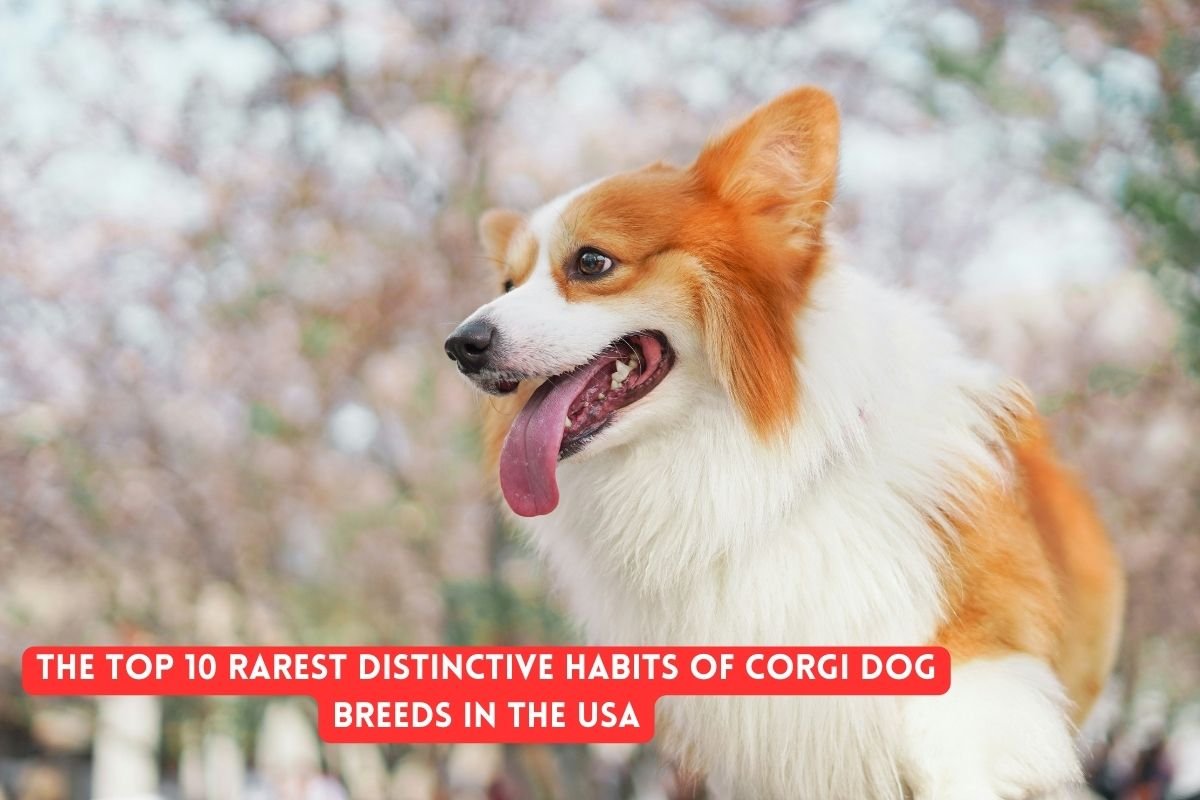Corgis are beloved dog breeds known for their adorable appearance, intelligence, and affectionate nature. While many of their traits are well-documented, there are some distinctive habits that set them apart. In this article, we explore the top 10 rarest distinctive habits of Corgi dog breeds in the USA.
Vocal Communication
Corgis are excellent communicators and often express themselves through a wide range of vocalizations. From barks and yips to grumbles and howls, each Corgi has its unique way of vocalizing, which can be surprising and endearing to their owners.
Herding Instincts
Originally bred as herding dogs, Corgis still retain their innate herding instincts. Even in domestic settings, they may exhibit herding behavior such as nipping at heels or attempting to corral other pets or family members, showcasing their strong work ethic and intelligence.
Enthusiastic Greeting Rituals
Corgis are known for their exuberant greetings, often characterized by enthusiastic tail wags, spinning in circles, and even ‘happy dances.’ This distinctive habit reflects their affectionate nature and boundless energy.
Corgi Zoomies
One of the most entertaining behaviors exhibited by Corgis is the phenomenon known as “Corgi zoomies.” This refers to sudden bursts of energy where the dog sprints around the house or yard at full speed, often accompanied by playful barking and leaps of joy.
Shadowing Behavior
Corgis are loyal companions and often exhibit shadowing behavior, where they closely follow their owners from room to room. This habit stems from their strong bond with their human family members and their desire to be involved in all activities.
Corgi Sploots
A unique trait of Corgis is their tendency to ‘sploot,’ which involves lying flat on their bellies with their hind legs stretched out behind them. This adorable and peculiar posture is not only comfortable for them but also serves to cool them down on hot surfaces.
Food-Related Quirks
Corgis are notorious food enthusiasts and may develop quirky eating habits such as ‘food dancing’ (excitedly prancing around their bowl before eating) or ‘food hoarding’ (stashing treats in hidden locations for later consumption).
Preference for Elevated Perches
Despite their short stature, Corgis have a penchant for elevated perches and may often be found perched on the back of couches or peering out windows from elevated vantage points, exhibiting their curious and alert nature.
Digging Tendencies
Many Corgis have a natural inclination to dig, a behavior that harks back to their origins as working dogs tasked with digging out vermin on farms. This habit may manifest as digging in the yard or attempting to excavate indoor spaces.
Corgi Lean
Corgis are affectionate dogs and often express their love by leaning their bodies against their owners, a behavior known as the “Corgi lean.” This physical closeness reinforces the strong bond between Corgis and their human companions.
Conclusion
Corgis are truly one-of-a-kind dog breeds with a host of distinctive habits that endear them to their owners. From their vocal communication to their quirky eating rituals, each Corgi possesses a unique personality that adds joy and laughter to the lives of those fortunate enough to share their homes.
FAQs
Do Corgis shed a lot?
Yes, Corgis are moderate to heavy shedders and require regular grooming to manage their shedding.
Are Corgis good with children?
Generally, Corgis are excellent family pets and can be great with children when properly socialized and trained.
Do Corgis require a lot of exercise?
Yes, Corgis are energetic dogs that require regular exercise to stay healthy and happy. Daily walks and playtime are essential for their well-being.
Are Corgis prone to health issues?
Like all breeds, Corgis may be susceptible to certain health problems, including hip dysplasia, degenerative myelopathy, and intervertebral disc disease.
Do Corgis bark a lot?
Corgis are known to be vocal dogs and may bark to communicate or alert their owners, but excessive barking can often be curbed through training and socialization.
